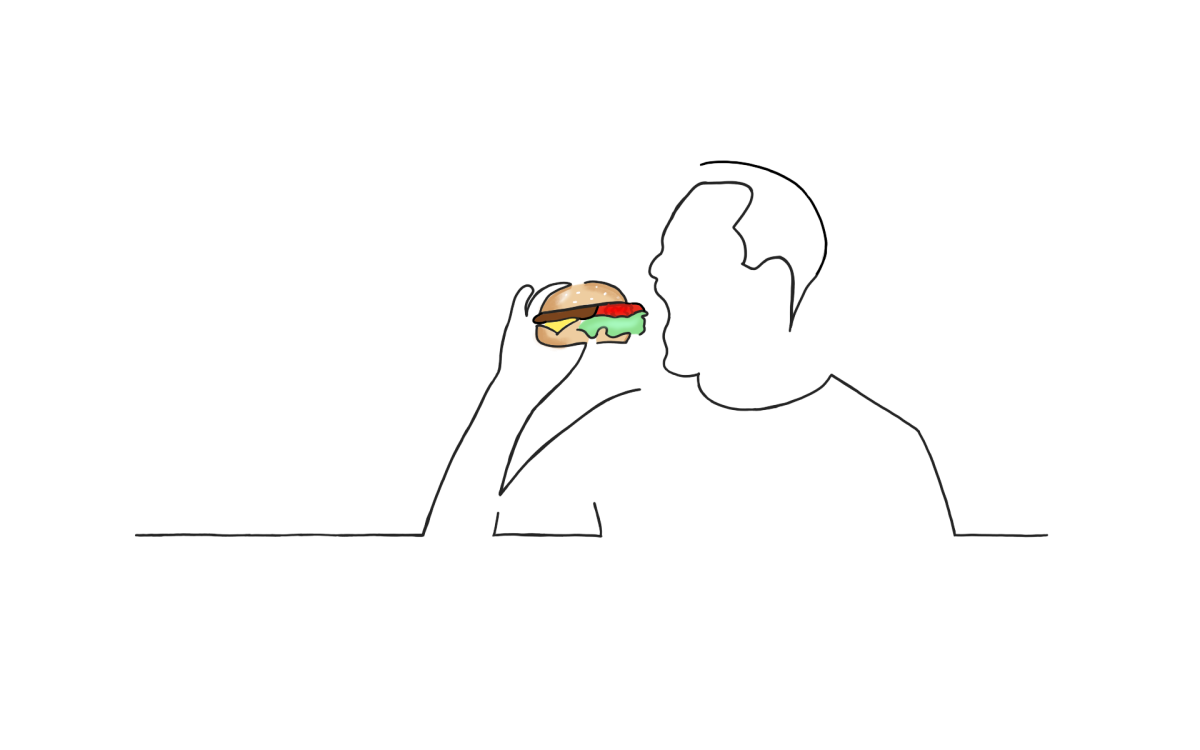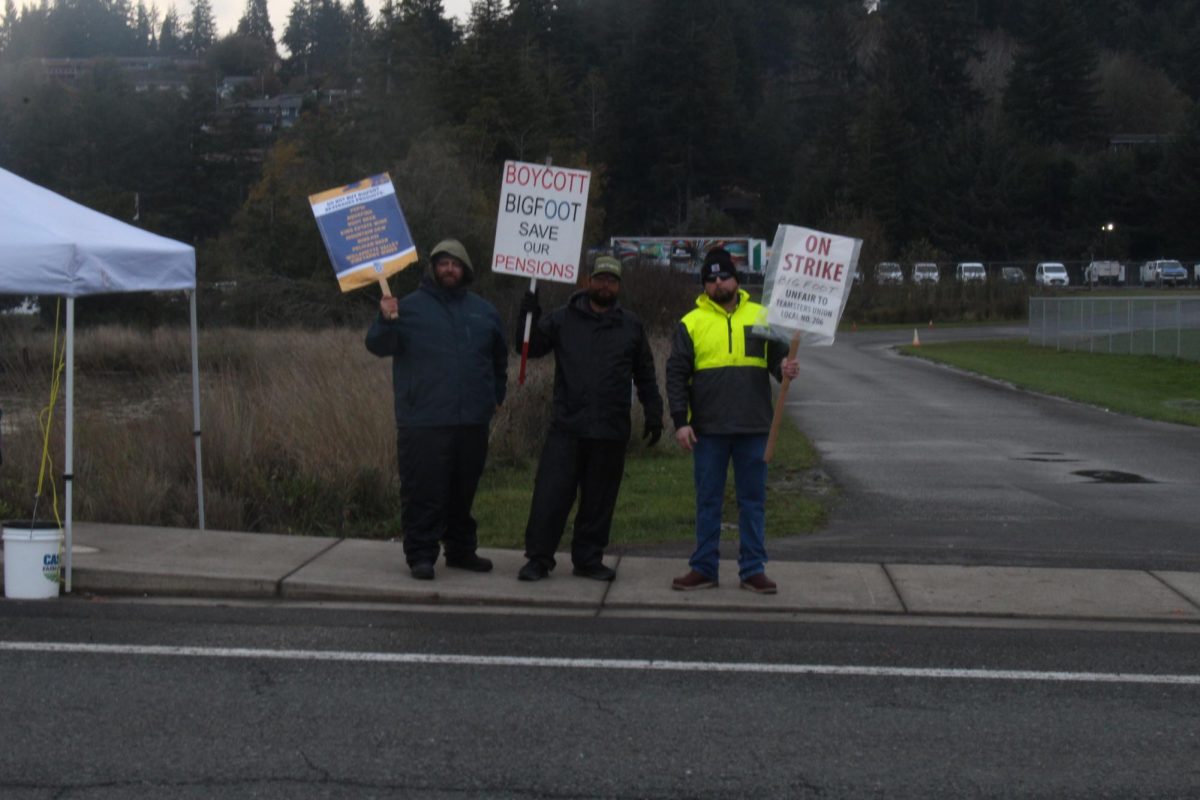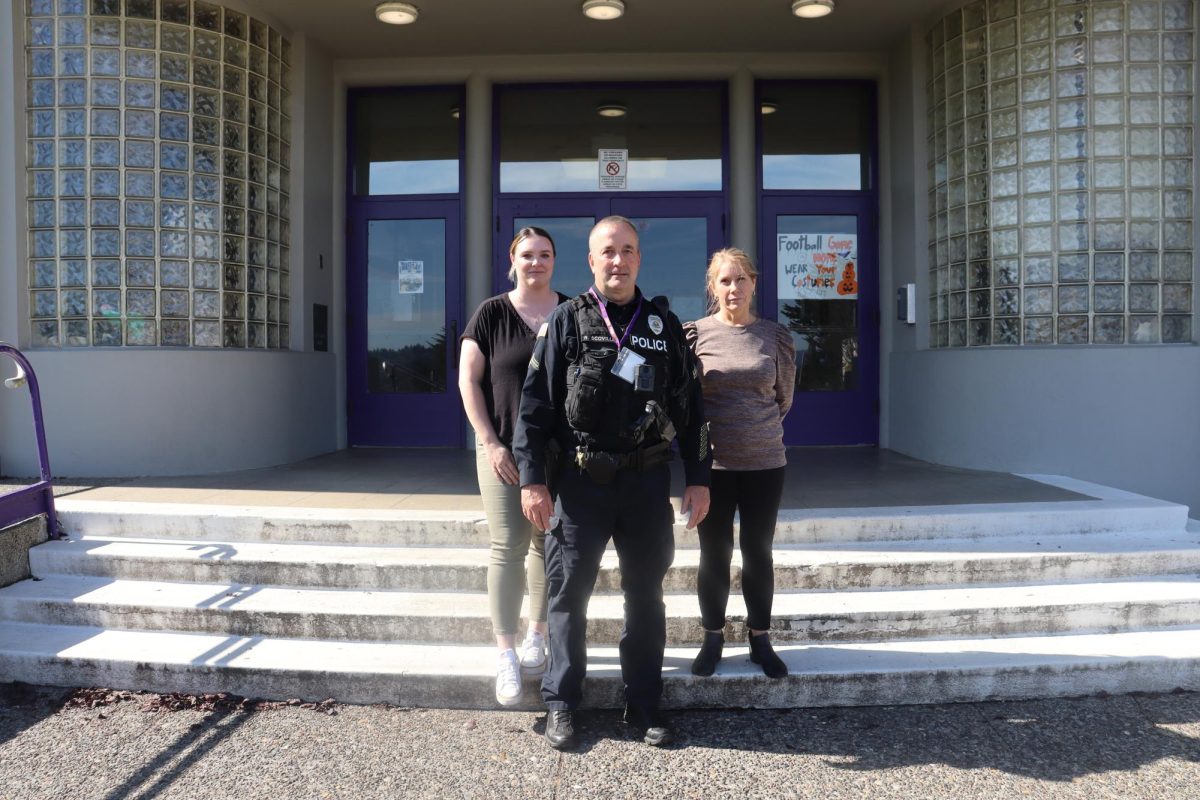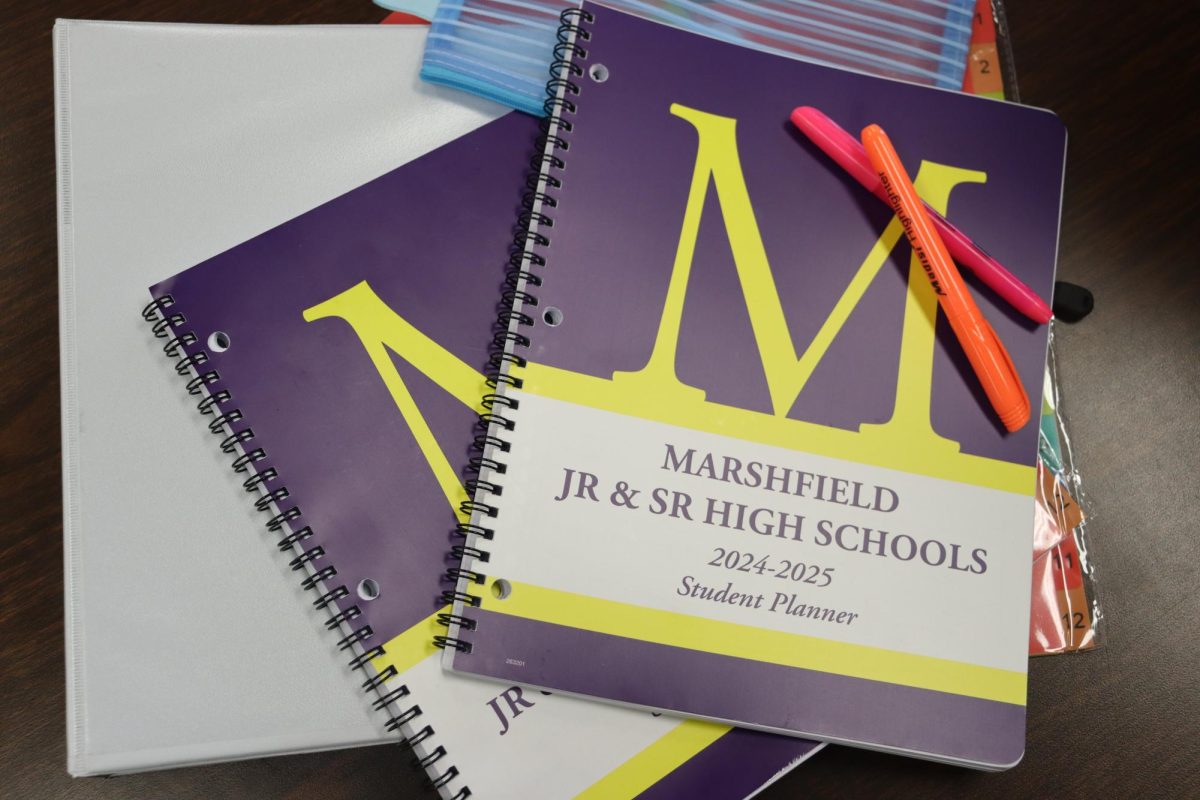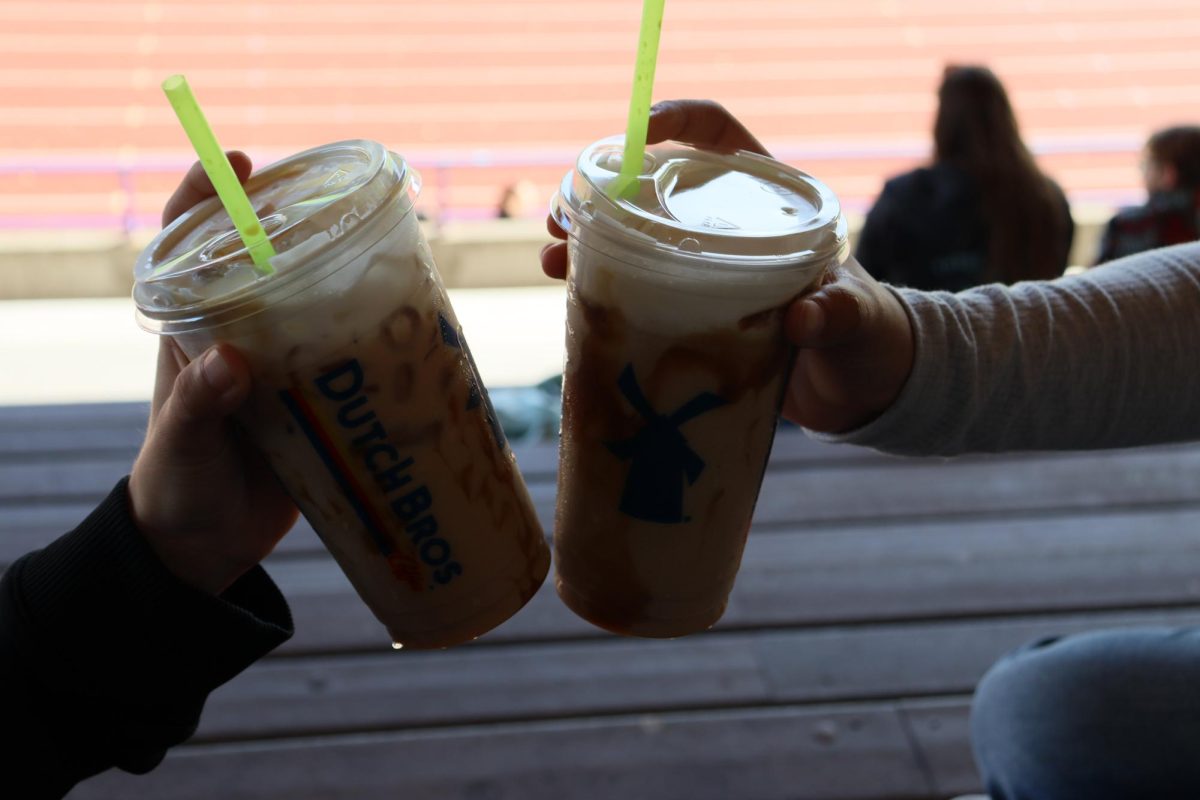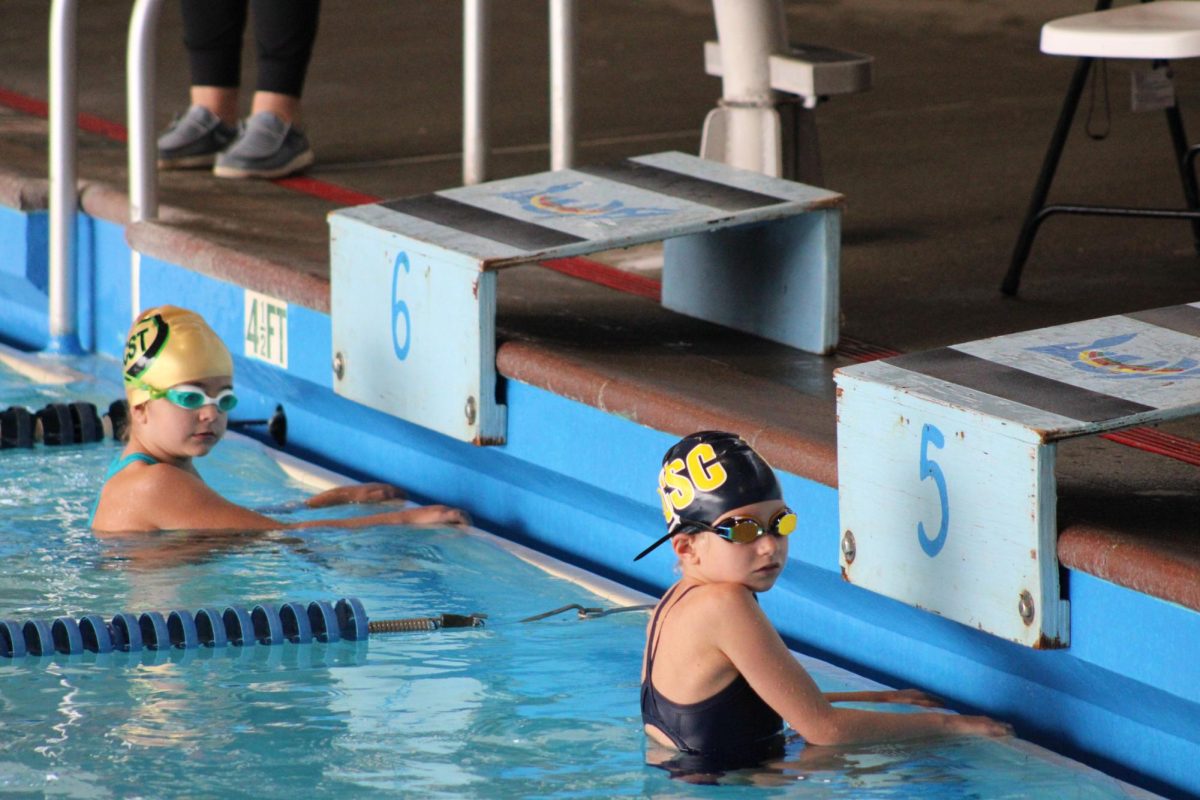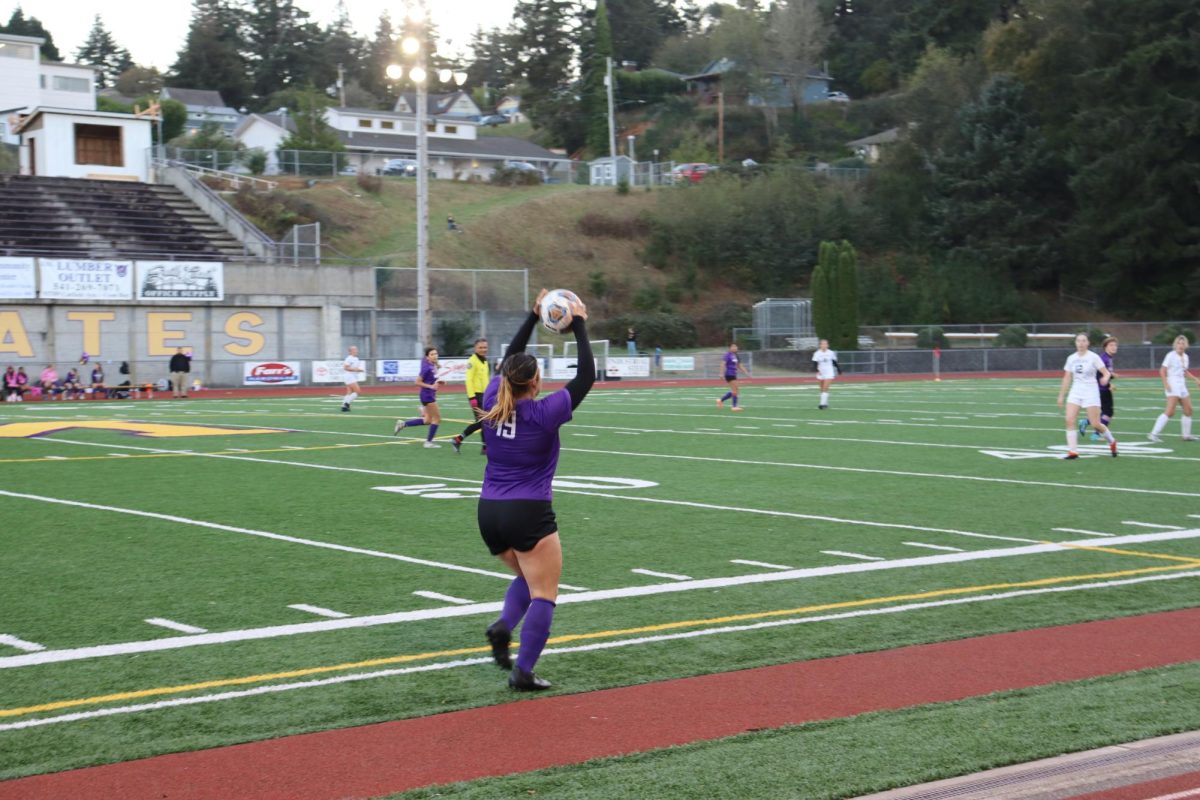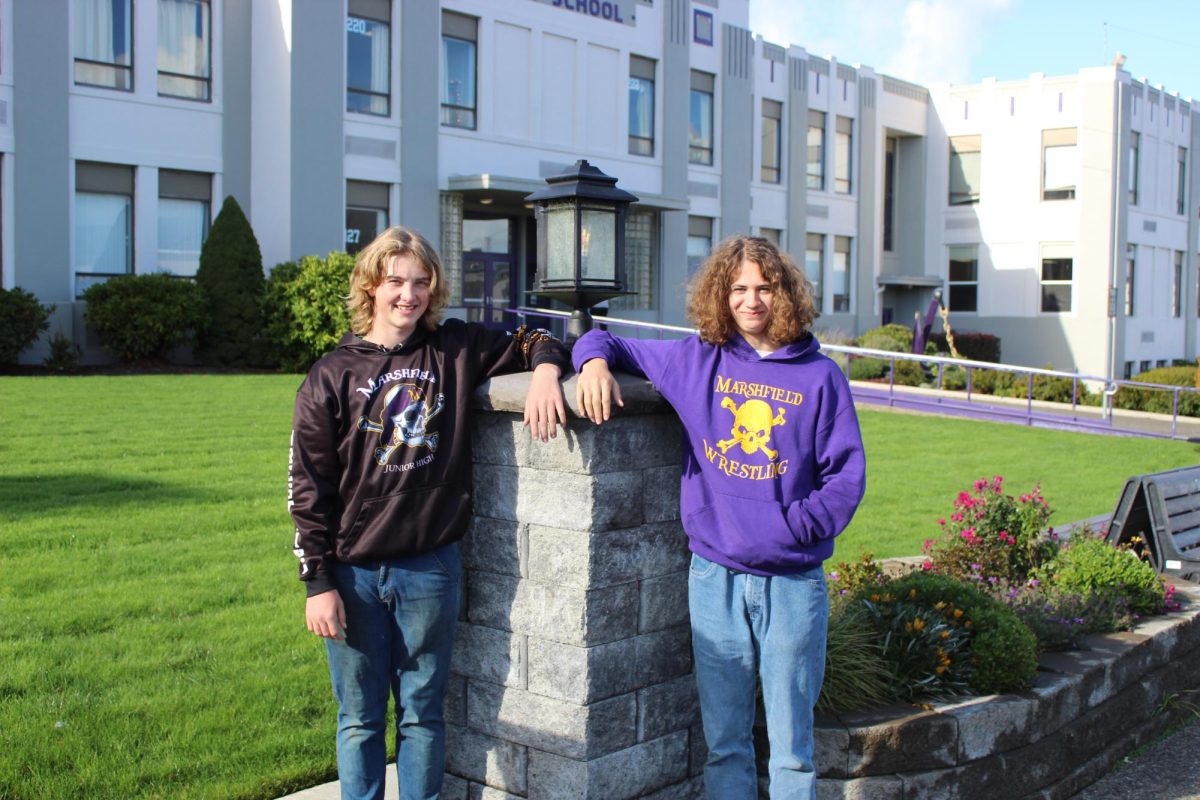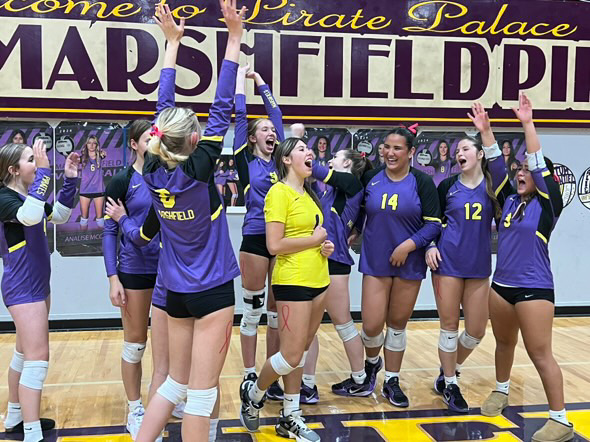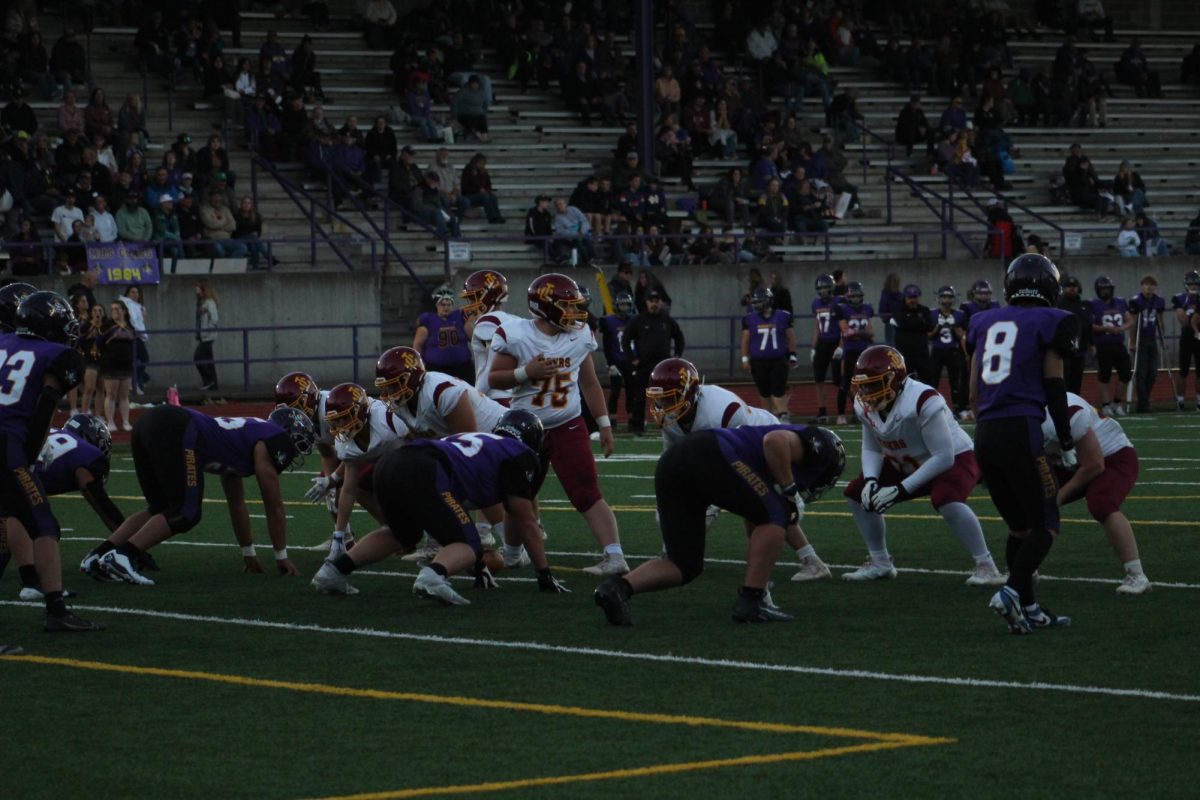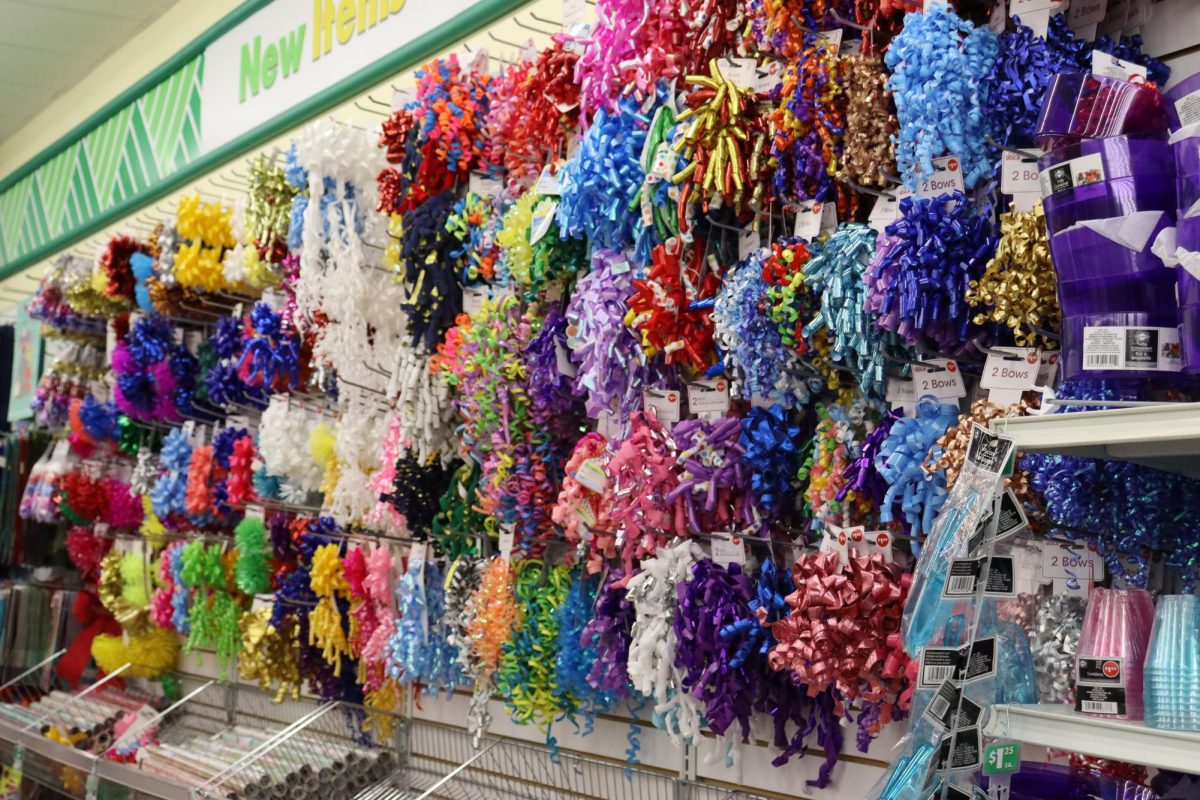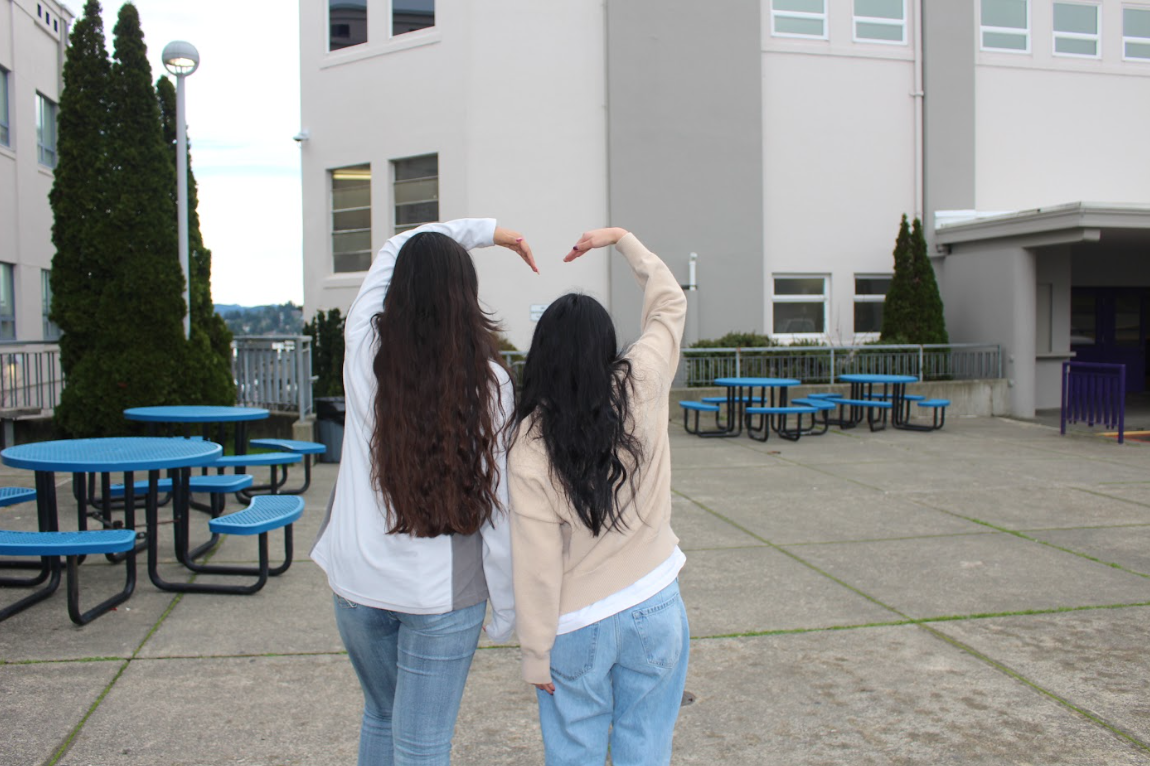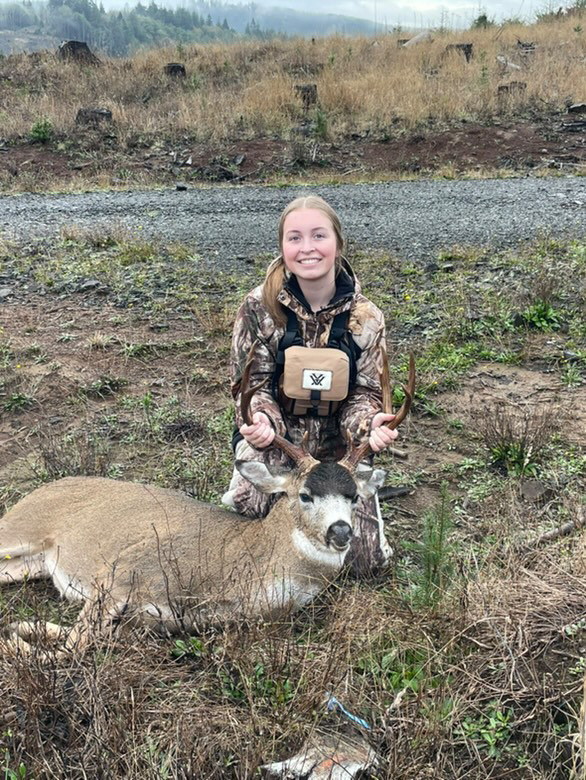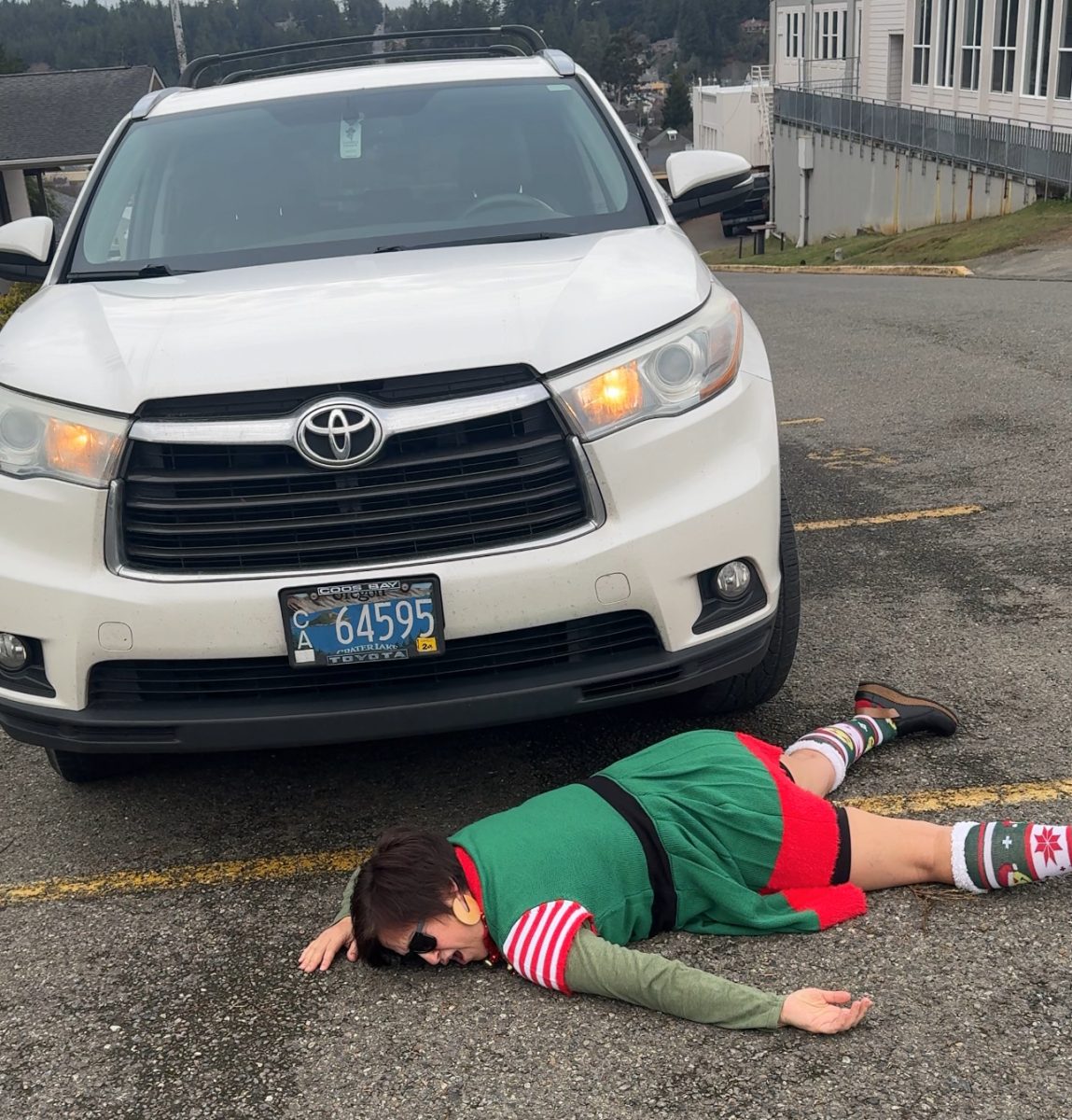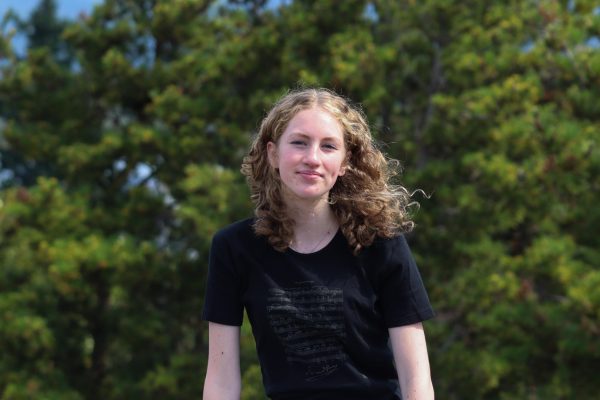The Marshfield High School Z Club is a club under Zonta’s values, and focuses on service in the community. It was started by Zonta International, which is a group made to empower women, and was created near the time women in the United States got to vote, when women were treated like they were nothing besides mothers and housewives. The MHS Z Club supports projects within Oregon’s Bay Area, and usually works with the Community 101 Program to sponsor nonprofit businesses that create positive change throughout the community.
“The Community 101 program is sponsored by the Oregon Community Foundation and it’s this program that we work with to allot $5,000 to different nonprofits in our area to support a topic of our choosing,” said senior Kiri Goodson, who is in her 2nd term as president of the MHS Z Club.
Community 101 doesn’t just take place with the MHS Z Club–it’s a statewide program to encourage community outreach. Businesses apply for grants within the program, and then Z Club can decide which nonprofit to support for a given year. Adviser of the MHS Z Club is Judge Paula Bechtold Laird, in conjunction with faculty adviser Garrett King. The students work hand-in-hand with advisers and statewide organizers to help improve their community.
“Community 101 is a program that teaches students about philanthropy, which is sharing money, and helps with organizations and community members who are in need,” stated Katie Dearing, the statewide coordinator for Community 101.
The first step in fulfilling the Community 101 vision is to choose a community project on which to focus. This happens relatively early in the school year. Then, students can look at which nonprofit businesses have applied for money and determine how to best help them.
“We, as a club, decide on a short list of topics that we think are pressing in the current year and we decide to make it a vote with the general population of the school and see what topic the students and staff think is the most important thing to tackle at the moment,” said Goodson.
In previous years, Z Club has focused on teen mental health, drug and alcohol abuse, and other facets affecting the student population. Last year, they chose to focus on substance abuse. They ended up splitting the grant between multiple organizations that have missions to improve that cause including AYA, Coos County Friends of Public Health, Devereux Center, HIV Alliance, and the Waterfall Clinic.
“This year we decided that the most pressing issue that we wanted to work on was preservation and conservation of the environment–especially our local beaches and pollution in our parks and such.”
Nonprofit organizations who focus on preservation and conservation within Coos County include Washed Ashore, the South Slough, Coos Watershed Association, Coos County STEP Program, and many more.
“We work with different kinds of nonprofits in our community that work with these issues and then we do our own research into their background, what they do, what they’re aimed towards, then we reach out to them and offer the opportunity to apply for our grant,” Goodson said.
Club members can decide to give all $5,000 toward one nonprofit, or break it up among several groups. It all depends on the need and projects the business is working on. They encourage many nonprofits to apply so they have more choices to make an impact.
“We decide, as a club, who has the biggest need for the money, who has a direct plan for exactly what they want to do with the money and who will implement the most change with the money and do the most good in the community,” Goodson added.
The whole process is beneficial for the students involved. Not only do they learn about their community, but they are also able to learn about grants and how nonprofit organizations work.
“We learn a lot about the grant writing process and what it takes for 501c3s, the different types of nonprofits in our area, to get the kind of funding that they need to thrive in our community,” said Goodson. “We also find the different types of resources that are out there today and we really learn a lot of the application skills that aren’t necessarily taught in a high school classroom.”
There is a reason why students get to take the lead in this program. The overarching belief is that this sets them up to eventually take the lead in their communities.
“Students are the experts in their community, it’s really important that when we talk about making the world a better place we listen very carefully to the voices of the people who exist in those places,” said Dearing. “So students come to the Community 101 program with lived experience and knowledge about what their communities need, and a clear understanding of how to begin addressing those issues. It’s such a powerful perspective that they’re bringing and it’s so important to being effective when we talk about making communities stronger.”
Each year that Z-club has chosen to participate in the program they present checks to the nonprofit businesses during an assembly, at the end of the year.
Aside from working with community nonprofits and the Community 101 program, Z Club holds weekly meetings, focuses on volunteering at MHS, and tries to build a spirit of service for younger generations.
“The original idea of Zonta was for women that were professionals, executives, business owners, to gather together and learn how government works,” said Bechtold Laird. “because they had never had the right to vote before. Suddenly they would be in a club and elect officers.”
There are Zonta groups all over the world and eventually they were brought to high schools as Z Club. While Zonta is originally intended to uplift women, school clubs are usually open to any student regardless of gender.
“At some point Zonta said ‘hey, it’s one thing to get women together and get them thinking about making changes in their community and in the world but we ought to be looking at high school kids also and encouraging them to think about problems in the community and in the world,’” Bechtold Laird added.
The club reaches back to the early 1900’s, and there have been many influential women involved. At one point, even Amelia Earhart was a Zonta member.
“The whole purpose is to help women help other women,” said Bechtold Laird. “The club itself is uplifting and teaching women how to be leaders.”


